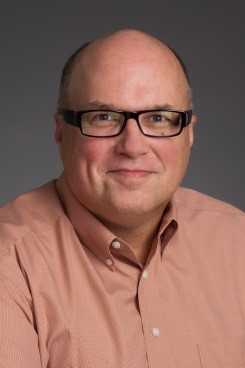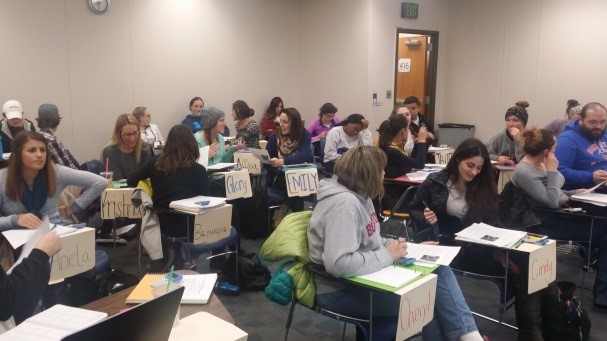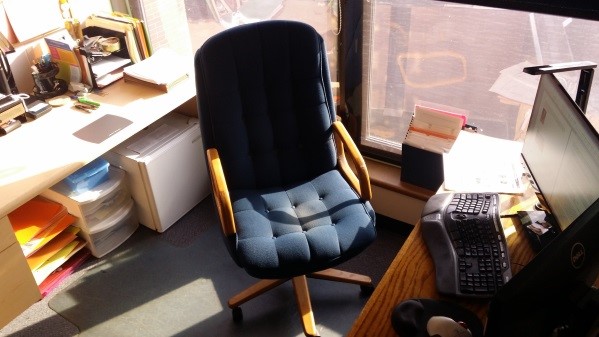 School name & locale: I teach at Boise State University, in Boise, ID; I am a full professor and I’ve been here since 1992. It’s a beautiful place in southwest Idaho, and Boise is the capitol of Idaho.
School name & locale: I teach at Boise State University, in Boise, ID; I am a full professor and I’ve been here since 1992. It’s a beautiful place in southwest Idaho, and Boise is the capitol of Idaho.
Type of college/university: Boise State is comprehensive 4-year university, offering bachelor’s degrees, master’s degrees, and doctorates. In the Department of Psychology, we only offer the bachelor’s degree, and currently we are the third largest major on campus, with 1,106 majors.
Classes I teach: The semester I am writing this (Spring 2015) I am teaching our Introduction to the Psychology Major course (online) with 180 students and a section of our Research Methods course (face-to-face) with 40 students. I also teach General Psychology, Statistical Methods, Psychological Measurement, and the Capstone Perspectives course from time to time.
What’s the best advice about teaching you’ve ever received?
I just don’t think I can pinpoint a singular piece of advice as the best ever. I’ve now been teaching for 25 years (the first three at the University of Wisconsin, Platteville, and the remainder at Boise State), and the accumulation of classroom teaching experiences, attending workshops at the Center for Teaching and Learning, attending teaching sessions at regional and national conferences, talking with colleagues about teaching, studying (and contributing to) the literature on the scholarship of teaching and learning – all of these experiences (and more) have contributed to the “best advice” I have ever received.
What book or article has shaped your work as a psychology teacher?
If I have to name one source regarding shaping my work as a psychology teacher, it would be the journal Teaching of Psychology. It’s been amazingly helpful over the years, and I’ve been privileged to contribute to it on occasion. A second choice for me would be McKeachie’s Teaching Tips.
Tell us about your favorite lecture topic or course to teach.
Well, if I were to pick a specific lecture topic, it would be my ESP lecture in the Sensation & Perception unit when I teach general psychology. At a NITOP conference in the early 1990s, I saw David Myers from Hope College do a series of ESP demonstrations that could be used in the classroom to help promote critical thinking and generating alternative explanations. The newspaper “trick” was so memorable that many students, years after the course was over, would see me somewhere in the community and ask me “how did you do the newspaper trick?” Just last year I had the chance to have dinner with Dave at the Stanford One Psychology conference, and I was able to thank him, in person, for being such a generous colleague.
Regarding my favorite course to teach, it would have to be Research Methods. I think that scientific reasoning combined with quantitative methodology provides a rich skill set to students that can help them lead reasoned personal lives and successful professional lives. We practice research skills by conducting original survey research. My ultimate goals are to help students build confidence in what they know and what they can do as well as continue to hone skills that will lead to success in college and beyond.
Describe a favorite in-class activity or assignment.
I’d say my favorite in-class activity is the use of clickers. I used clickers in my classes for the first time Fall 2008, and I’ll never teach a course again without the use of clickers or some other electronic audience response system. It changed the way I teach forever. You can instantly know what the real understanding of your students is at any moment on any topic, and if only 14% of students can successfully differentiate an independent variable from a dependent variable based on a clicker question, I get immediate feedback, and students get that feedback as well. You don’t race through “the material,” but you slow down and teach, explain, use analogies, etc., until the bottleneck is resolved. It may not be the clicker device, per se, which makes the difference but the pedagogical change in my own teaching which ultimately makes the difference.

Editor's Note: Eric said that his best teaching days are those when his students are actively engaged with one another. He also said he loves the name folders.
What teaching and learning techniques work best for you?
Here’s a bit of a twist – what teaching and learning techniques do not work best for me – in general, multiple choice tests. To be honest, I use multiple choice items with my clicker questions, but the purpose is for readiness assurance. I do not give multiple choice tests nor quizzes. My primary focus regarding undergraduate education in psychology is on skill development. I do not know of a single occupation in the United States where a college graduate can be gainfully employed taking multiple-choice tests for a living; thus, I’d prefer my students not practice that skill as much as they do. I’d prefer to focus my efforts on practicing more marketable skills like critical thinking, communication, problem solving, and others. Multiple-choice testing isn’t evil, but I believe an over-reliance on that technique is to the detriment of our students.
 What’s your workspace like?
What’s your workspace like?
I work on the principle of “pile reduction theory,” meaning that I have each project piled up in either the home or school office, and I work to reduce the number of piles. Rightly or wrongly, I use my email inbox as a do-to list, so as pile reduction theory applies, the fewer emails in my inbox, the more “caught-up” that I feel (which may or may not be the appropriate perception). But feeling “caught up” does feel pretty good!
Three words that best describe your teaching style.
Fair, rigorous, skills-centered
What is your teaching philosophy in 8 words or fewer?
Help students see the practical applications of psychology.
Tell us about a teaching disaster (or embarrassment) you’ve had.
It was Fall 1991 and I was teaching a History and Systems course at the University of Wisconsin, Platteville. It was the Wednesday afternoon before Thanksgiving, classes were still in session, and students did not want to be having class the Wednesday afternoon before Thanksgiving. The classroom had individual chair desks and a smooth tile floor – these details will matter shortly. One student in particular did not want to be there, and she made her voice heard. Then she made her voice heard again that she did not want to be there. Then again. Finally, I said that if she wanted to leave (without any repercussions), she could leave. But she stayed and continued to pester me from the front row. Eventually, I just lost my cool. I went over to her desk, grabbed it (not her), and pulled the desk (and her) across the in front of the classroom, out the door, and into the hallway. Then I went back and grabbed her backpack and handed it to her out in the hallway. Some students loved it and some students were taken aback. It was a terrible teaching mistake – after Thanksgiving break I apologized to the student publicly in class (on the good advice of my department chair) and she completely shut down for the rest of the semester—and understandably so. I lost the opportunity to be her teacher that day because I lost my cool. It was a rookie mistake, and one that I have not repeated.
What is something your students would be surprised to learn about you?
I think my students would be surprised to learn that I actually have a life outside of psychology and the University. I love my family dearly and dote on them whenever possible. I’m actually a decent landscape photographer, and in another lifetime did substantial darkroom work. I also like woodworking, mostly small projects like turned pens and bandsaw boxes, and I’m about to build my first piece of real furniture – a small table for the entry in the home that Lisa and I enjoy so much. I’m not a cook by any means, but I’m pretty good on my Traeger grill.
What are you currently reading for pleasure?
I’ve got a bunch of books going, but the main one is Make It Stick: The Science of Successful Learning by Brown, Roediger, and McDaniel (2014). I have to admit that I just don’t read fiction; it’s just not pleasurable for me. Reading for work is actually fun, because I don’t spend enough time reading for work.
What tech tool could you not live without?
There are so many! But I would have to say my cell phone, because it has become such a multi-purpose tool and it serves as my electronic tether to so many additional tech tools.
What’s your hallway chatter like? What do you talk to colleagues about most (whether or not it is related to teaching/school)?
Our hallway chatter is pretty typical, either about meeting that just ended or a policy change or something happening on campus. I’m fortunate to have a cordial relationship with all of my colleagues, and I am lucky to have so many great friends in psychology scattered all over the nation. It’s a good life!
